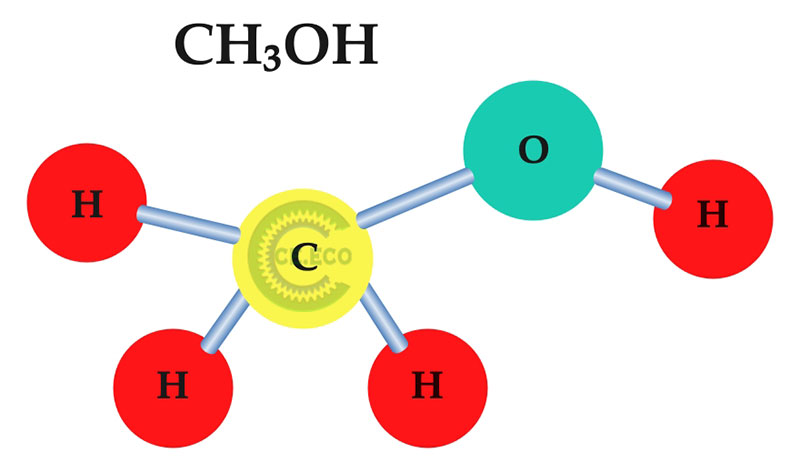Methanol, the building block par excellence of basic chemistry, is the basis from which numerous complex chemicals and polymeric materials can be obtained as well as fuels suitable both for thermal engines, thanks to the high octane number, and for fuel cells, in DMFC, which indirectly, after its transformation into hydrogen by reforming.
Chemically, it can be transformed by dehydration into dimethyl ether, cetane number of 55, which can in turn be used in jet fuels and diesel, as well as a solvent and coolant. Or, through the “methanol to olefin” (MTO) process in ethylene and propylene, it can be transformed into synthetic hydrocarbons of greater molecular weight and other derivatives thereof, which are normally obtained from oil and natural gas.
It is also sometimes used as a denitrifying agent as it accelerates the anaerobic activity of bacteria that “break” the nitrates, releasing atmospheric nitrogen.
In 2005, Nobel laureate George A. Olah advocated the creation of a methanol economy in his essay Beyond Oil and Gas: The Methanol Economy.
It is the simplest of alcohols, it is capable of transporting energy efficiently, it is liquid at room temperature, soluble in water and, last but not least, it is biodegradable.
Methanol is the quintessential intermediate of the chemical industry as an alternative energy vector to hydrogen, therefore, it offers great opportunities for the energy industry and for chemistry, causing a marked increase in its demand.
Unlike an energy source already available in nature as is, a vector is “created” by accumulating energy between its chemical bonds in order to be able to transport it more easily and release it during use.
It can be obtained from syngas (CO + H2) and semi-pure methane and is easier to handle than gases that require important infrastructures such as gas pipelines, tankers and liquefaction plants, for transport and for regasification. Methanol can be used directly as a fuel for road vehicles, as a fuel for marine engines or for electricity generation, with a clear reduction of pollutants such as NOX, SOX and particulate matter. Further advantages come from being able to be used in production cycles of the chemical industry.
Within BIOZIMMI, using a mathematical model of our own conception, methanol is “synthesized” within the chemical subsystem ZEB. In fluid bed dynamic molecular sieves, methanol is absorbed by the surface of the molecular sieve itself as it becomes liquid using a lowering of temperature and starting from syngas containing an adequate mixture of reagents involved in the reaction.
An inert gas is used for the handling of methanol inside the ZEB, thus reducing the risk of accidental explosions.
CO + CO2 + 5 H2 —> 2 CH3OH + H2O ∆H298 = -140kJ.mol-1
















